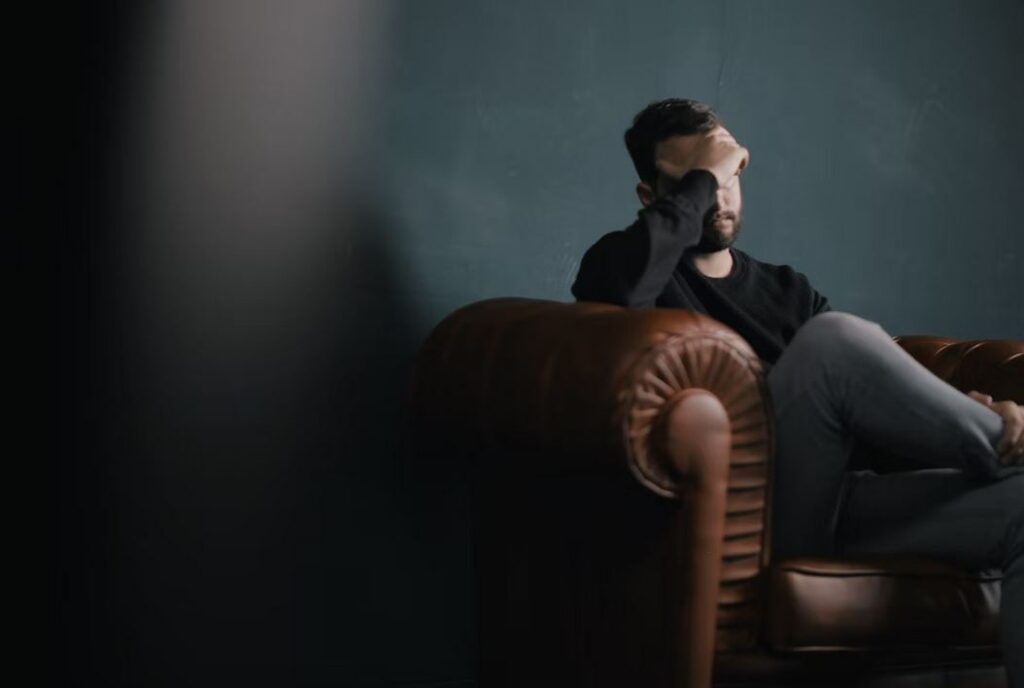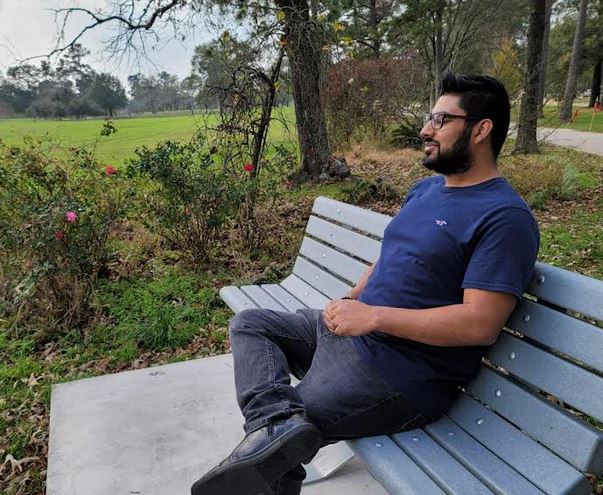By Ahmed Sharma
Earlier this year, 50 Cent shared a quote about depression, saying it was a luxury, not many people can afford. The New York Post cited him as saying, “I think depression is a luxury,” he said on the syndicated hip-hop radio show Big Boy’s Neighborhood. “Where I’m from, you can’t afford to be depressed.” His comments were met with some criticism for being insensitive, but I didn’t think it was. I understood exactly where he was coming from.
For some reason, in the South Asian community, mental health was never talked about, or very seldom talked about. Nowadays, that is starting to change, and for a very good reason. Sadly, many people lost their lives either through suicide or murder-suicides because of the seemingly awkward conversations that were never had or couldn’t happen. The idea of mental health (and no pun intended) was all in your head. Nothing that couldn’t be solved through prayer, just working harder, or even ignoring the problem.
I know dozens of loved ones who struggle with depression and other related mental health-related issues they’re trying to work on. And fortunately, they’ve been able to seek medical help, whether through talk therapy or medicine. Lately, the subject of mental health is being discussed in South Asian American communities, but for some reason, there’s still a level of backlash some might not ever move past.
It’s become such a huge joke in the South Asian community that even Hasan Minhaj discussed it in his first standup special: Homecoming King. He wasn’t talking about mental health but the sentiment works nonetheless where South Asians can’t help but wonder, “What will people say?” In other words, “What will people say if they found out I was talking to a therapist? They’d think I was crazy!”
And that feeling of being alienated from the community that we hold dear is what keeps us from progressing further. it’s a shame. It’s not just in South Asian communities, of course, and many activists and therapists of color are working to try and change that narrative. And that’s where I come in: It’s great more people are talking about the importance of mental health, and I’ve written dozens of stories about it as a journalist, but right now, I hope that by unapologetically speaking about my own experience in therapy, it might inspire other people to take these topics more seriously.
RELATED: Celebrate AANHPI Mental Awareness Days
I was never medically diagnosed with anything like depression, PTSD, or anxiety (to my knowledge) so I never thought therapy would be for me. Not to mention, I’ve grown up around people, who have taught me to be grateful and see the brighter things even in the darkest light. I credit my family for all my success because, as the youngest child and knowing how consistently hardworking they are, even to this day, I felt like there was no excuse for me not to do well in my life. And yet, I wasn’t able to reconcile my struggles, because I felt so worried about letting my loved ones down with everything I did and anytime they looked at me with a sense of disappointment, my world would be crushed.
The age gap between me and the majority of my family members made it seem for me at least, that much harder to connect with them. However, now that I’m getting older, I’m starting to see things a lot from their perspective. And yet, I still pushed myself to make sure I made them proud. And because I wasn’t sure if I was making them proud, I was putting myself under a psychosomatic type of hyper-radical pressure which I think a lot of South Asians tend to do because of that idea behind what people will say. And I didn’t want to have awkward conversations with my family say, if I suddenly quit my job or got fired.

I’d later discover through therapy that this pressure I felt I had was just my paranoia. My family may not be your typical “hugs and kisses” type or whatever Norman Rockwell may have pictured, but they make up for it in support. It took me years to realize that but I’m glad I was able to see it myself.
And maybe it’s because we don’t give people enough credit for the things they do, or for how far we’ve come as a society. Especially here in America, where we just don’t care anymore about traditional peer pressure. It’s not taboo anymore for people to have tattoos. It’s not taboo for people to smoke marijuana. And yet, the idea of saying, “I recently started counseling,” makes it feel like you are committing a crime. Because I thought I didn’t need therapy, I never pursued it. I thought, “It isn’t for me, I’m not going through anything nor do I feel like I’ve gone through anything that might warrant counseling.
This is not to say I was ashamed of it, by any means. I knew people that saw counselors or psychiatrists beforehand and always knew the benefits of it, especially during the COVID-19 pandemic. The conversations behind mental health during that time, at least in my line of work as a journalist, were more prevalent than I’ve ever seen and only are growing as we enter May, also known as Mental Health Awareness Month.
Since I’d written a dozen stories on mental health, and I was going through some internal, maybe even existential struggles last year, I thought, I’ll see what all the buzz is about, especially now that I have insurance and could finally afford an appointment.
So I am in that privileged position that 50 Cent mentioned, now, where I can literally afford to be sad if I wanted to. But it’s not even so much as I can afford to fix myself from being sad, it’s more of, I don’t have to be sad anymore. And so when I started therapy, it was great. Part of it was because my counselor was very understanding of my upbringing.
I won’t go too much into detail about my therapist, but I’ll admit they are a person of color and despite not sharing the same ethnicity, we shared common experiences, which made talking about it much easier. It also helped that I was already ready to dive in and get the process started, so I wasted no time trying to get answers to questions about my life, why I was so upset, and why I thought the way I thought. And within months of frequent sessions and taking them seriously, I started recognizing patterns.
I’m still working towards fixing certain patterns of behavior and started taking steps towards solving the issues that were plaguing me so much, but I have made a lot of progress this year. Again, it’s because I made myself vulnerable enough to discuss these problems with a confident and professional individual who helped me feel heard. Some have had bad experiences with therapists and it’s unfortunate. I was lucky I got to choose mine through the different organizations that specialize in revolutionary methods for patients to connect with the right counselor like Headway and Psychology Today.
Like I said, since I’ve started working on myself, I’ve genuinely felt better. I look forward to each session because, at the end of it, I feel inspired and try to encourage everyone I know to look into therapy for themselves. It’s not going to be overnight and who knows how I’ll feel another year from now, but even as I write this, it’s cathartic for me.
We’re always going to make mistakes. And the point is to learn from them. There are always going to be issues and obstacles in the way, but now I feel like I’m not alone in trying to resolve the problems. And with so many cases of murder-suicides in the South Asian community, it leads you to think why aren’t we just listening to or not one another?
Why is it so difficult to tell somebody close to you? You’re not okay. And whose responsibility is it? To listen it’s one thing to say. You want to make someone feel like they’re not alone. But maybe we’re too afraid to ask for help. Forget this idea of “what will people say?” and just really think about that. Maybe it’s because we don’t want to seem like a burden, but we don’t consider that if somebody else were to ask us for help or feel the way that we did about it being a burden we would be furious and ask, “why didn’t you just call me?”
The truth is, maybe we just didn’t open up ourselves more. Maybe we just really were too busy but in the end, it was never too late. It’s never too late to pick up the phone. Call someone and say “Hey, I’m not doing so great,” or “Is now a good time?” It won’t cost you anything to just be there for someone.
AsAmNews is published by the non-profit, Asian American Media Inc. Please support our fundraisers. Purchase your tickets to a Night of Hilarity- a fun conversation with comedienne Jiaoying Summers and ABC7/KABC anchor David Ono to be held October 9 in Los Angeles.
Then join us for a stimulating conference about issues that divide the Asian American communities. Our fundraiser Common Ground and the dinner after will be held October 26 at UC Berkeley.
AsAmNews is partially supported by the Stop the Hate grant administered by the California State Library in partnership with the California Department of Social Services and the California Commission on Asian and Pacific Islander American Affairs. To report a hate incident or hate crime and get support, go to CA vs Hate.


